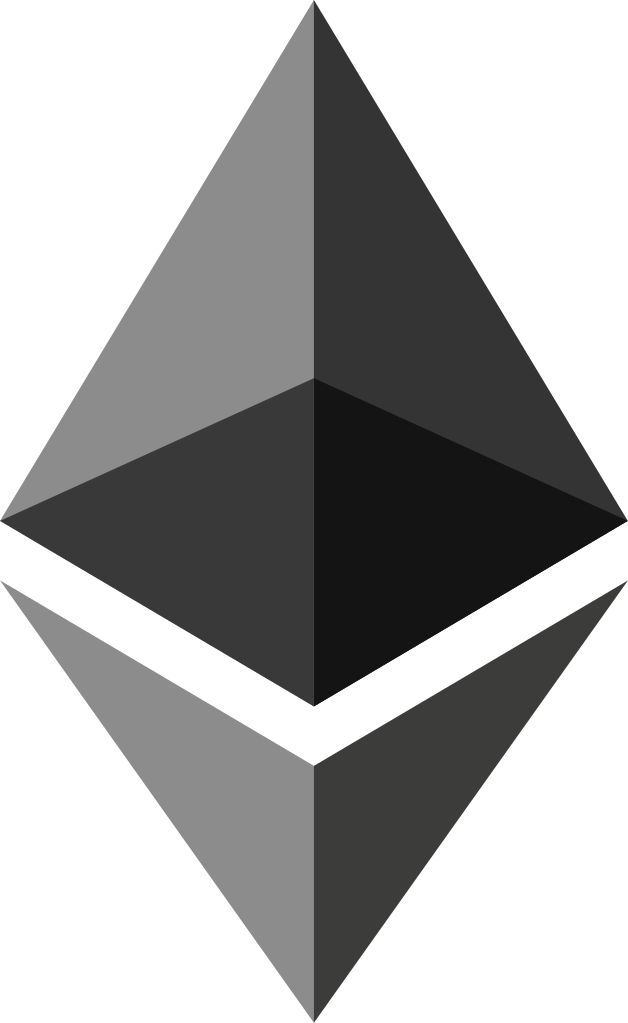Comparar Chainlink (LINK) vs Ethereum (ETH) Coin
This article is aimed at uncovering the differences and similarities between two significant cryptocurrencies in today's digital age, Chainlink (LINK) and Ethereum (ETH). While both have their distinct features and influence on the blockchain technology ecosystem, such a comparison can provide keen insights into their applications, benefits, and potential future developments.
User rating
Cryptogeek rating
Puntaje de confianza
¿Cómo funciona?
Sobre
|
ChainLink (LINK) es la moneda nativa de la plataforma ChainLink. Representa un token ERC-20 que figura en múltiples intercambios emparejados con las principales criptomonedas. En el momento de escribir este artículo, puede intercambiar LINK con la moneda fiduciaria USD en Coinbase Pro.
Los contratos inteligentes no pueden acceder a los datos por sí solos. Dado que la conexión de estos contratos a los datos a través de node se considera un punto de falla, el uso de un servicio descentralizado podría ser una solución.
Por lo tanto, el proyecto ChainLink ve su misión en la integración de los datos fuera de la cadena en contratos inteligentes a través de una red oracle descentralizada confiable. Los tokens LINK llegaron al mercado en 2017 y la moneda rápidamente llegó a las 50 principales criptomonedas por capitalización de mercado. Más tarde alcanzó el top 20. ChainLink se asocia con una gran red bancaria SWIFT.
|
Ethereum es una red de innovación que proporciona su propia cadena de bloques con su criptomoneda (Ether o ETH). Esta cadena de bloques alberga aplicaciones descentralizadas (DApps) que fueron introducidas por primera vez por Ethereum. Otra innovación de esta plataforma es la implementación de contratos inteligentes que ha cambiado la percepción del posible uso de blockchain, revelando el potencial de la tecnología al máximo.
|
Tipo
Fecha de creación
País
Idiomas
Equipo
Protocolo
|
Public blockchain
|
Public blockchain
|
Precio actual (USD)
Punto más alto (USD)
Intercambiar en el precio (24h)
Volumen (24h)
|
Sin datos
|
4104895897.05010
|
Hashrate
Suministros máximos
Suministro total
Suministros circulantes
|
Sin datos
|
120708316.76639
|
Velocidad de transacción / Tiempo de Bloque
Comisión de transacción
Rentabilidad minera
Algoritmo
Tipo de prueba
Totalmente preminado
Dirección de contrato inteligente
Total de monedas extraídas
|
Sin datos
|
111766505.06150
|
Es el comercio
Recompensa de bloque
Tiempo de bloque
| Sobre |
ChainLink (LINK) es la moneda nativa de la plataforma ChainLink. Representa un token ERC-20 que figura en múltiples intercambios emparejados con las principales criptomonedas. En el momento de escribir este artículo, puede intercambiar LINK con la moneda fiduciaria USD en Coinbase Pro.
Los contratos inteligentes no pueden acceder a los datos por sí solos. Dado que la conexión de estos contratos a los datos a través de node se considera un punto de falla, el uso de un servicio descentralizado podría ser una solución.
Por lo tanto, el proyecto ChainLink ve su misión en la integración de los datos fuera de la cadena en contratos inteligentes a través de una red oracle descentralizada confiable. Los tokens LINK llegaron al mercado en 2017 y la moneda rápidamente llegó a las 50 principales criptomonedas por capitalización de mercado. Más tarde alcanzó el top 20. ChainLink se asocia con una gran red bancaria SWIFT.
|
Ethereum es una red de innovación que proporciona su propia cadena de bloques con su criptomoneda (Ether o ETH). Esta cadena de bloques alberga aplicaciones descentralizadas (DApps) que fueron introducidas por primera vez por Ethereum. Otra innovación de esta plataforma es la implementación de contratos inteligentes que ha cambiado la percepción del posible uso de blockchain, revelando el potencial de la tecnología al máximo.
|
| Tipo |
Tipo
token
|
Tipo
coin
|
| Fecha de creación |
Fecha de creación
2017
|
Fecha de creación
2015
|
| País |
País
Sin datos
|
País
Canada
|
| Idiomas |
Idiomas
Sin datos
|
Idiomas
Sin datos
|
| Equipo |
Equipo
Public
|
Equipo
Public
|
| Protocolo |
Protocolo
Public blockchain
|
Protocolo
Public blockchain
|
| Precio actual (USD) |
Precio actual (USD)
Sin datos
|
Precio actual (USD)
4718.9512
|
| Punto más alto (USD) |
Punto más alto (USD)
Sin datos
|
Punto más alto (USD)
1432.8800
|
| Intercambiar en el precio (24h) |
Intercambiar en el precio (24h)
Sin datos
|
Intercambiar en el precio (24h)
2.93
|
| Volumen (24h) |
Volumen (24h)
Sin datos
|
Volumen (24h)
4104895897.05010
|
| Hashrate |
Hashrate
Sin datos
|
Hashrate
190120
|
| Suministros máximos |
Suministros máximos
Sin datos
|
Suministros máximos
Sin datos
|
| Suministro total |
Suministro total
Sin datos
|
Suministro total
Sin datos
|
| Suministros circulantes |
Suministros circulantes
Sin datos
|
Suministros circulantes
120708316.76639
|
| Velocidad de transacción / Tiempo de Bloque |
Velocidad de transacción / Tiempo de Bloque
Sin datos
|
Velocidad de transacción / Tiempo de Bloque
15
|
| Comisión de transacción |
Comisión de transacción
Sin datos
|
Comisión de transacción
Sin datos
|
| Rentabilidad minera |
Rentabilidad minera
medium
|
Rentabilidad minera
high
|
| Algoritmo |
Algoritmo
Sin datos
|
Algoritmo
Ethash
|
| Tipo de prueba |
Tipo de prueba
Sin datos
|
Tipo de prueba
PoW
|
| Totalmente preminado |
Totalmente preminado
Sin datos
|
Totalmente preminado
Sin datos
|
| Dirección de contrato inteligente |
Dirección de contrato inteligente
Sin datos
|
Dirección de contrato inteligente
Sin datos
|
| Total de monedas extraídas |
Total de monedas extraídas
Sin datos
|
Total de monedas extraídas
111766505.06150
|
| Es el comercio |
Es el comercio
Sin datos
|
Es el comercio
yes
|
| Recompensa de bloque |
Recompensa de bloque
Sin datos
|
Recompensa de bloque
2.000000000000
|
| Tiempo de bloque |
Tiempo de bloque
Sin datos
|
Tiempo de bloque
15
|
Social
Sitio web
Twitter
Ventajas
|
Capacidades tecnológicas
Ofrece oráculos descentralizados
Presencia significativa en redes sociales
|
Well-known Founder
An expanding developer community
More than a cryptocurrency
Continues to attract more businesses
|
Desventajas
|
Pocas garantías para los inversores
Poca comunicación sobre nuevos desarrollos
|
Struggles with scaling
Uses a complicated programming language
High transaction fees
|
Clasificación
| User rating |
User rating
5 / 5
3 reseñas de los usuarios
|
User rating
5 / 5
3 reseñas de los usuarios
|
| Cryptogeek rating |
Cryptogeek rating
4.2 / 5
|
Cryptogeek rating
4.6 / 5
|
| Ventajas |
Ventajas
Capacidades tecnológicas
Ofrece oráculos descentralizados
Presencia significativa en redes sociales
|
Ventajas
Well-known Founder
An expanding developer community
More than a cryptocurrency
Continues to attract more businesses
|
| Desventajas |
Desventajas
Pocas garantías para los inversores
Poca comunicación sobre nuevos desarrollos
|
Desventajas
Struggles with scaling
Uses a complicated programming language
High transaction fees
|
La calificación de Chainlink (LINK) es 5, basada en 3 opiniones de usuarios. La calificación de los usuarios de Ethereum (ETH) es 5, basada en 3 opiniones de los usuarios.
We also calculate the special Cryptogeek TrustScore based on the characteristics of each coin.
Elija otras empresas
After an in-depth analysis of Chainlink (LINK) and Ethereum (ETH), it's clear that the two cryptocurrencies, each have their unique value propositions and use cases. While Ethereum primarily focuses on enabling smart contracts and decentralized applications with its more general-purpose blockchain, Chainlink facilitates secure and reliable connection between blockchains and real-world data. Each has its place in the greater blockchain ecosystem and is shaping our technological future in distinct ways. The decision to use, invest or follow either of them really depends on individual preferences and goals.
This article is aimed at uncovering the differences and similarities between two significant cryptocurrencies in today's digital age, Chainlink (LINK) and Ethereum (ETH). While both have their distinct features and influence on the blockchain technology ecosystem, such a comparison can provide keen insights into their applications, benefits, and potential future developments.

